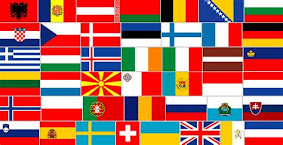by Alex Kurtagic
Decades too late, Conservative British Prime Minister David Cameron has stated the obvious: multiculturalism has failed.
'[a]ddressing a security conference in Germany, David Cameron argued the UK needed a stronger national identity . . .'
In a sane world, this would be reason to rejoice. We would expect tight border controls, as desired by nine tenths of the population; we would expect illegal immigrants rounded up and thrown out, as desired by three quarters of the population; and we would expect nationalism and, yes, Whiteness, emphasised and celebrated in media and education.
While Mr. Cameron 'signalled a tougher stance on groups promoting Islamist extremism', and while 'Mr Cameron suggested [that] there would be greater scrutiny of some Muslim groups that get public money', and that '[m]inisters should refuse to share platforms or engage with such groups', he also said 'Frankly, we need a lot less of the passive tolerance of recent years and much more active, muscular liberalism'.
So, the reason the multicultural experiment has failed is that there has not been enough muscular liberalism. I am sure Jared Taylor has some interesthing thoughts on Mr. Cameron's extraordinary conclusion.
Completely unselfconscious, Mr. Cameron continued:
Let’s properly judge these organisations: Do they believe in universal human rights … Do they believe in equality of all before the law? Do they believe in democracy…?
These are the sorts of questions we need to ask. Fail these tests and the presumption should be not to engage with these organisations.
Am I the only one at a loss for words here?
How can Mr. Cameron not see how liberalism, universalism, and egalitarianism cannot eventually but result in a multicultural society? After all, a sincere belief inuniversal human rights and equality before the law make it impossible to exclude from a society the kind of immigrants who are incompatible with a strong national identity: it is impossible to deny them entry on the basis of their ethnic background; it is impossible to deny them access to employment; it is impossible to deny them access to citizenship; it is impossible to deny them access to public office; and it is therefore impossible in the long run to prevent them from changing their hosts’ indigenous culture and society until they are fractured by fundamental differences on the issues that are most important to each group’s most committed members.
A strong national identity is perforce traditionalist, particularist, and inegalitarian. It is dependent on localisation, specificity, and uniqueness, as this is, stabilised into a tradition over many generations, what differentiates the indigenous from the alien, then native from the foreigner. A strong national identity, therefore, implies that what is indigenous takes priority over what is alien. It is incompatible with multiculturalism or diversity.
The success of the liberal project was predicated from the beginning on the destruction of traditional forms—and by extension, in replacing what was local, specific, and unique, with global, vague, and generic abstractions.
In short, aggressive liberalism is aggressively hostile to a strong national identity.
What Mr. Cameron’s embarrassing statements, following Angela Merkel's analogous remarks last year, serve to highlight is how far removed “conservatism” in modern politics has become from traditionalism, and therefore how meaningless it has become. It used to be that conservatives were identified with tradition, as tradition is inherently conservative.
Mr. Cameron’s statements, therefore, also highlight why radical change of the present political paradigm is needed, and why it cannot be radical if it is not founded on traditional principles.




























No comments:
Post a Comment
Your comment will appear after it has been checked for spam, trolling, and hate speech.